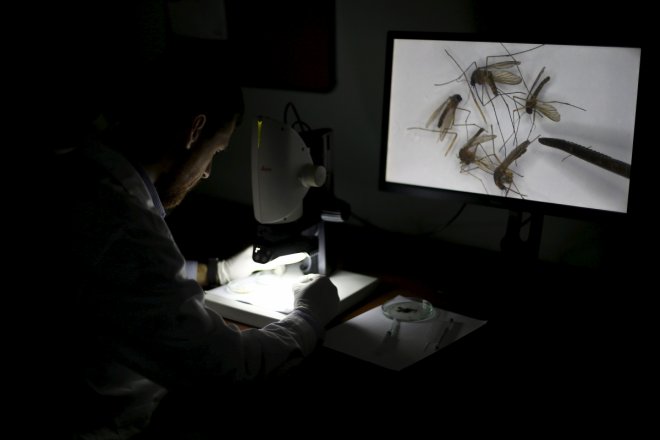
A new research has revealed that a medication used to prevent and treat malaria has the potential to fight the deadly Zika virus. The study that has been published in the journal Scientific Reports, showed that the anti-malaria drug, called chloroquine, has the potential to treat Zika infections.
Zika is a mosquito-borne virus that was first identified in Uganda in 1947. It can be passed from a pregnant woman to her unborn baby. Zika virus can cause birth defects and can also result in microcephaly in which the baby's head is unusually smaller than expected.
In cases of adults, Zika infections have been linked to a rare neurological syndrome known as Guillain-Barre and other neurological disorders as well.
In recent times, Zika virus has been observed to be a major global health risk. There is no treatment or vaccine for Zika infection yet. Companies and scientists are working to develop a safe and effective vaccine for the virus. Zika is commonly said to be a close cousin of dengue and chikungunya.
"There is still an urgent need to bolster our preparedness and capacity to respond to the next Zika outbreak," study co-author Alexey Terskikh, Associate Professor at Sanford Burnham Prebys Medical Discovery Institute in La Jolla, California, in the US, said. "Our latest research suggests the anti-malaria drug chloroquine may be an effective drug to treat and prevent Zika infections," Terskikh added.
The researchers examined the effect of chloroquine in human brain organoids and pregnant mice infected with the virus. They found that the drug markedly reduced the amount of Zika virus in maternal blood and neural progenitor cells in the foetal brain.
According to reports, pregnant mice received chloroquine through drinking water in dosages equivalent to acceptable levels used in humans. "Chloroquine has a long history of successfully treating malaria, and there are no reports of it causing birth defects," Terskikh said.
He added: "Additional studies are certainly needed to determine the precise details of how it works. But given its low cost, availability and safety history further study in a clinical trial to test its effectiveness against Zika virus in humans is merited."









